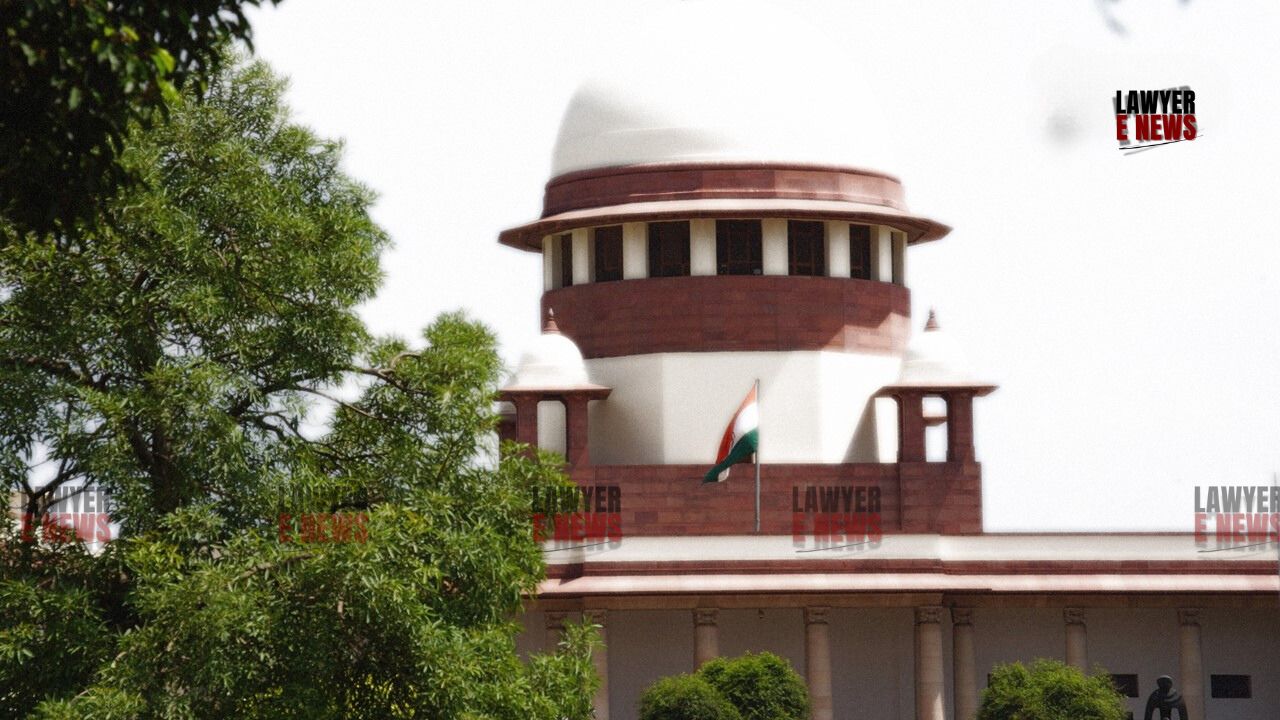-
by Admin
15 February 2026 5:35 AM



Supreme Court of India delivered a landmark ruling in which clarifying key principles under the Marumakkathayam customary law. In affirming the Kerala High Court's decision, the Court ruled on the nature of property inheritance under the matrilineal system, resolving significant legal questions regarding the rights of tharwad and thavazhi members.
The case originated from a partition suit involving the Andipillil Tharwad’s properties in Kerala. The plaintiffs, descendants of Parukutty Amma, claimed their right to partition of two disputed property items, asserting their classification as tharwad property under Marumakkathayam law. The defendants challenged this, contending that the properties were co-owned or held individually and not as tharwad property.
The Trial Court ruled in favor of the plaintiffs, classifying the properties as tharwad property and granting partition. The Kerala High Court upheld the Trial Court’s decision, leading the defendants to appeal before the Supreme Court.
The Marumakkathayam system, predominant in Kerala, follows matrilineal succession, emphasizing descent through the female line. As the Supreme Court explained:
“Unlike the Mitakshara system, which is founded on agnatic relationships, the Marumakkathayam system is matriarchal, with joint families (tharwad) consisting of a female ancestor, her children, and their descendants in the female line.”
The Court further clarified the role of the karanavan, the oldest male member managing the tharwad’s property, noting that this role does not confer any special proprietary rights.
A pivotal question before the Court was whether property obtained by a female through partition retains its character as tharwad property or becomes her separate property. Justice Sanjay Karol observed:
“Partition is an act by which the nature of the property is changed, reflecting an alteration in ownership… The joint nature of the property is destroyed, and it ceases to be joint property post-partition.”
The Court endorsed the minority view from the Kerala High Court’s earlier Full Bench decision in Mary Cheriyan v. Bhargavi Pillai, which held that a female inheriting property individually post-partition acquires it as her own. Justice Karol emphasized:
“A single female cannot constitute a thavazhi. For a property to retain its tharwad character post-partition, it must be inherited by a group, not an individual.”
The Supreme Court differentiated the facts of this case from the theoretical debates. For item No. 1, the Court found that the property was inherited collectively by a thavazhi, including Parukutty Amma and her children, thus retaining its tharwad character. Similarly, for item No. 2, the Court upheld findings that the property, acquired by mortgage deed and held jointly, belonged to the thavazhi of Parukutty Amma.
“The property acquired by the collective group (branch 5) was held as tharwad property, protecting the rights of all members, including future generations.”
The Court reaffirmed the principle that it would not interfere with concurrent factual findings by lower courts unless they were perverse or caused undue hardship. Justice Karol noted:
“Interference in concurrent findings is justified only if they are divorced from evidence, arbitrary, or contrary to law… No such circumstances arise here.”
Implications and Prospective Application of the Ruling
While the Supreme Court upheld the minority view as the correct interpretation of law, it applied this prospectively. Justice Karol clarified:
“The pronouncement of law in this judgment shall apply only henceforth. Any transaction concluded or ongoing will not be disturbed.”
The Supreme Court dismissed the appeal, affirming the preliminary decree passed by the Trial Court and upheld by the High Court. The properties were classified as tharwad property, and the Trial Court was directed to proceed with the final decree as per law.
Date of Decision: November 22, 2024
